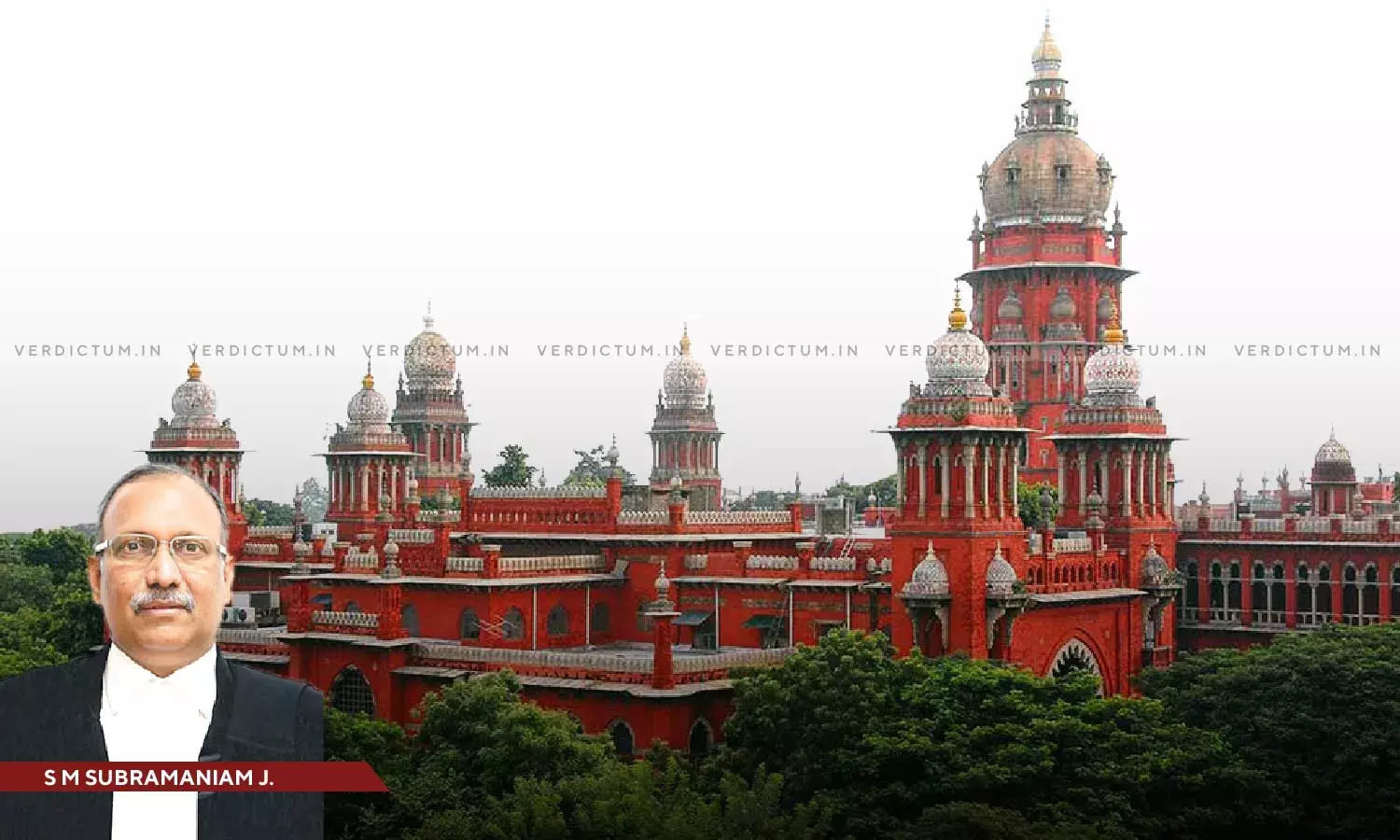Specialist Doctors Refusing To Work In Govt. Hospitals Are Infringing Fundamental Rights Of Poor & Needy Patients: Madras HC
The Madras High Court stated that the doctors after undergoing medical specialty courses, refusing to work in Government Hospitals, infringe upon the fundamental rights of the poor and needy patients.
The Court upheld the obligation for medical graduates to fulfil bonded service in government medical institutions.
The Bench pointed out that the general public had the right to expect such specialists to utilise their services during their training for the benefit of the sick, poor, and needy. Therefore, it was natural for the government to ensure that such doctors, who have undergone post-graduate training at a very low cost by utilising resources from the poor and needy, serve the poor and needy not only for the country, but also for the State of Tamil Nadu in particular.
A Single Bench of Justice S.M. Subramaniam observed, “Providing decent medical treatment is an integral part under Article 21 of Constitution of India. The Government is duty bound to provide treatment to poor and the needy people, who all are admitted in Government Hospitals…Thus, such an approach of the Doctors cannot be appreciated, since medical profession is a noble profession and the conduct of the Doctors must be in consonance with the Rules made by the Medical Council of India and the Government. Tax payers money in huge are spent for the doctors to undergo Post Graduate Medical Courses. Poor people contribute by paying tax in various forms.”
Advocate Suhrith Parthasarathy represented the petitioners, while GA K.Tippu Sulthan appeared for the respondents.
The petitioners had challenged the appointments made by the Directorate of Public Health and Preventive Medicine under the Tamil Government Servants (Conditions of Services) Act, 2016. Their appointments as Assistant Surgeons were contingent upon fulfilling a bond agreement to serve in government medical colleges and hospitals for a specified period after completing their post-graduate medical courses.
The petitioners argued that their service during the COVID-19 pandemic should have been counted towards fulfilling the bond period. However, the Government countered, stating that pandemic duties were part of their training and not equivalent to bonded service.
In order to ensure that the services of trained Post Graduate Doctors were made available to the poor and the needy patients, a bond signed by the medical candidates with three sureties was obtained from the candidates at the time of their admission.
The Court remarked that these candidates were a well qualified registered medical practitioners who must have signed the bond only after careful reading and understanding of its terms and conditions.
Consequently, the Bench observed, “Even the Government is not justified in reducing the bond period from two years to one year. However, these Specialty Doctors and their services are to be utilized to the optimum level for the welfare of the patients treated at Government Hospitals.”
Considering that the petitioners had admittedly signed the bond and accepted the terms and conditions stipulated therein, the Court ordered them to serve in Government Medical College and Hospitals as per their appointment order in compliance with its conditions.
Accordingly, the High Court dismissed the petition.
Cause Title: S.Sahana Priyankaa v. The State of Tamil Nadu & Ors. (Neutral Citation: 2024:MHC:1907)
Appearance:
Petitioners: Advocate Suhrith Parthasarathy
Respondents: GA K.Tippu Sulthan













